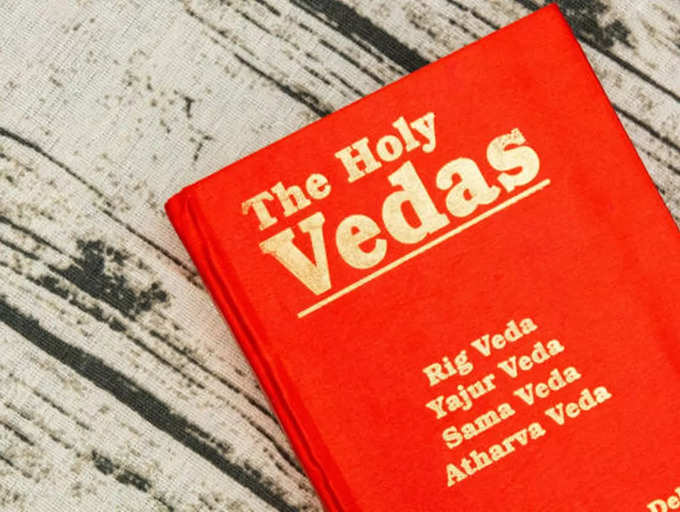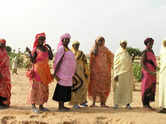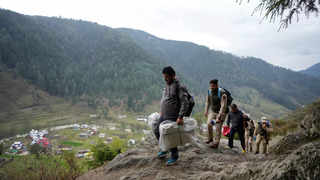01/7Six important things you need to know about Vedas

The Vedas, meaning "knowledge" in Sanskrit, are ancient texts that form the foundation of Hinduism. Composed in Vedic Sanskrit between 1500 and 500 BCE, these texts are the oldest in Hinduism and were initially passed down orally before being transcribed. Here are five essential aspects to understand about the Vedas.
02/7What is Veda:


The term "Veda" translates to "knowledge," reflecting the comprehensive understanding of existence, rituals, and spirituality contained in these texts. The Vedas represent a profound repository of knowledge encompassing diverse aspects of life, spirituality, and philosophy. Their enduring relevance in Hinduism is evident in the continued adherence to Vedic principles, rituals, and the unique perspectives they offer on existence. Understanding the Vedas provides insights into the roots of Hindu thought and the rich tapestry of ancient Indian wisdom.
03/7Collections and Subtypes:


The Vedas comprise four collections: Rig Veda, Sama Veda, Yajur Veda, and Atharva Veda. Each collection serves a distinct purpose, ranging from hymns and religious rituals to spells and philosophical narratives.
The four Vedas are further categorized into specific types of texts:
Aranyakas: Focus on rituals and observances.
Brahmanas: Provide commentaries on rituals.
Samhitas: Include benedictions, prayers, and mantras.
Upanishads: Offer philosophical narratives and dialogues.
These classifications represent the diverse nature of the knowledge encompassed in the Vedas, catering to various aspects of life and spirituality.
04/7The Concept of the Fifth Veda:


Some post-Vedic texts, including the Mahabharata and certain Puranas, refer to themselves as the "fifth Veda." This concept is found in the Chandogya Upanishad, suggesting the evolving nature of Vedic knowledge. While the core four Vedas remain foundational, subsequent texts acknowledge new dimensions of wisdom.
The Mahabharata, an epic narrative that includes the Bhagavad Gita, and the Puranas, a genre of ancient Indian literature containing mythological narratives and cosmology, claim a status akin to the revered Vedas. These texts go beyond the ritualistic and hymnic focus of the original Vedas to provide extensive mythological, historical, and philosophical content.
05/7Authorship


The authors of the Vedas are not explicitly known, emphasizing the focus on the ideas rather than the individuals behind them. Traditional belief attributes the compilation to Vyasa, who organized the mantras into the four Samhitas. Despite the antiquity of the Vedas, their relevance endures in contemporary Hinduism, guiding spiritual practices, rituals, and philosophical perspectives.
06/7Unique Philosophical Concepts:


The Vedas introduce distinctive philosophical ideas, such as the concept of exchange. Exemplified in the 'yagya' ritual, it emphasizes reciprocity between humans and gods. Unlike monotheistic traditions, where an all-powerful god requires nothing from humans, the Vedic concept revolves around mutual giving and receiving. This exchange continues in present-day Hindu rituals like 'naivedya' and 'prasad.'
07/7Relevance of Vedas Today


The Vedas remain relevant today as timeless sources of spiritual wisdom, guiding principles for ethical living, and reservoirs of profound insights into the nature of existence. Their teachings continue to inspire individuals seeking spiritual fulfillment, providing a foundation for Hindu philosophy and practices. In a modern context, the Vedas offer valuable perspectives on morality, duty, and the interconnectedness of all life, fostering a deeper understanding of the self and the universe.































































closecomments
SIGN IN WITH
GoogleEmail